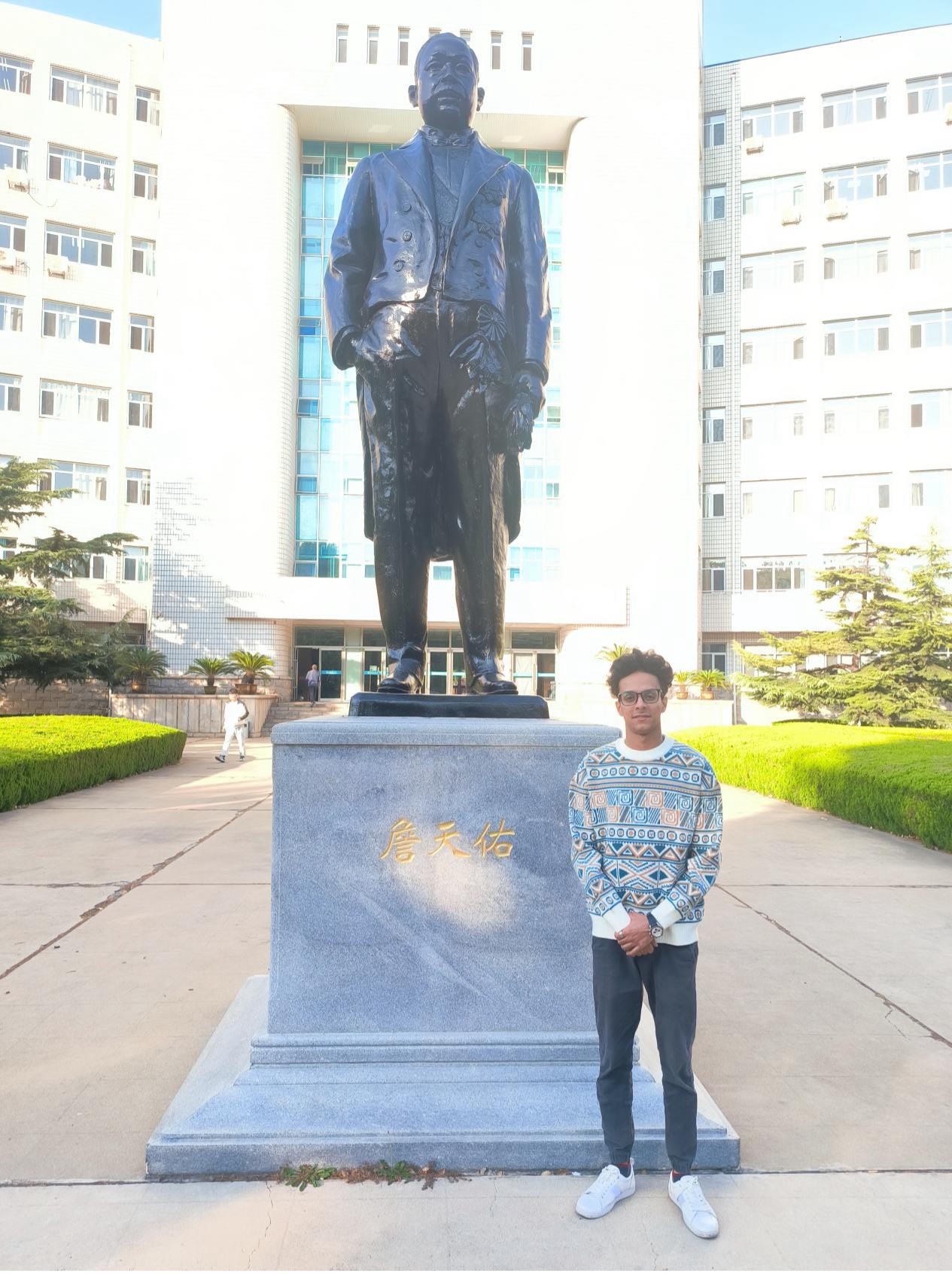




- BRNN
- BRI News
- BRNN News
- Database
Official Documents Polices and Regulations
Inter-government Documents International Cooperation BRI Countries
Business Guide Economic Data BRI Data
Trade
Investment Projects Latest projects
Cases - Content Pool

Obadi Akram Wathek Ghaleb (front) takes a selfie with his friends. (Photo provided by Obadi Akram Wathek Ghaleb)
China, ancient and mysterious, has always captivated me.
Growing up in Yemen, I dreamed of one day immersing myself in this country's rich history, vibrant culture and stunning landscapes. As soon as I graduated from high school, I eagerly packed my bags and set off to study in China. Six years have flown by, and I am now pursuing my master's degree here.
During my time in China, I developed a deep appreciation for Chinese poetry, especially the works of Du Fu, one of the country's most revered poets. My Chinese teacher explained that his poetry is renowned for its profound humanistic themes and social resonance. To me, his verses are like a rich, aged wine – each sip leaves a lingering aftertaste.
"Dew turns into frost since tonight. The moon viewed at home is more bright."
"The beacon fire has gone higher and higher. Words from home are worth their weight in gold."
"Though I am gray, still I'd sing and drink my fill. With verdure spring's aglow, it's time we homeward go."
Easy to understand and full of emotion, these classic lines resonate deeply with me, a traveler far from home.

Obadi Akram Wathek Ghaleb stands next to a statue of Zhan Tianyou, the father of China's railways. (Photo provided by Obadi Akram Wathek Ghaleb)
As a devoted fan of Du Fu, I visited the Chengdu Du Fu Thatched Cottage Museum in southwest China's Sichuan Province. Walking through the quiet, elegant courtyard, I imagined the poet strolling through the bamboo groves, writing passionately in his cottage, or gazing at the stars on moonlit nights. I longed to travel back in time to ask him how he had crafted such tear-inducing lines as, "The moon viewed at home is more bright."
My country has endured years of war, and I find peace in my studies in China knowing that my family is safe and sound. The words I received from them are truly "worth their weight in gold." I dream of returning home with the knowledge and experiences I've gained in China, working alongside my childhood friends to contribute to Yemen's development.
Life in China has been welcoming. My former neighbors were an elderly couple I affectionately called "grandpa" and "grandma." They treated me with warmth, as if I were their own grandson. I had always felt they would live a long, happy life together. But recently, I learned that my grandpa had passed away. I struggled to accept this loss and fell into deep sorrow.
One evening, as the city lights began to shine, I sat quietly in my dorm room, browsed the internet, and instinctively turned to Du Fu's verses on mourning.
I found the lines from "Dreaming of Li Bai": "We stifle sobs on parting with the dead. On parting with the living, tears are shed." and from "Temple of the Premier of Shu": "But he died before he accomplished his career. How could heroes not wet their sleeves with tear on tear."
These moving words brought me comfort, reminding me that life and death are universal, and that as long as one lives meaningfully and is remembered by others, that is enough.
At 26, I am a young man from Yemen who deeply resonates with these ancient Chinese verses over 1,000 years after they were written. This reminds me that human emotions are universal. By listening sincerely to each other's inner worlds, we can achieve true understanding and connection.
When a Chinese friend once asked why I love Chinese poetry so much, I explained that poetry has a unique power. It lets us see the beauty in the world, brings warmth to the lonely, offers hope to the despairing and gives courage to the weak.
Although often brief, Chinese poetry is beautifully crafted, harmonious and rich in meaning, filled with wisdom that inspires us to reflect and imagine. Every time I read a good Chinese poem, I'm engaging in a soulful conversation with the poet, embarking on a spiritual journey that transcends time and space.
(Obadi Akram Wathek Ghaleb is a student from Yemen at Dalian Jiaotong University)

Tel:86-10-65363107, 86-10-65368220, 86-10-65363106